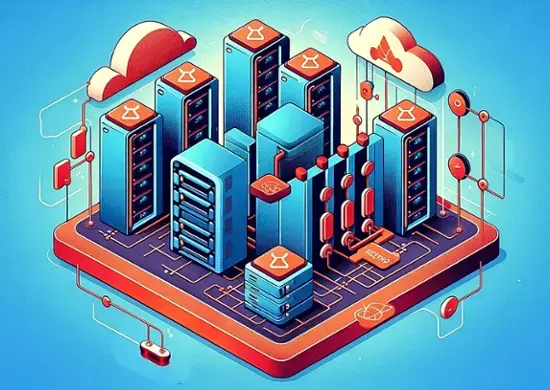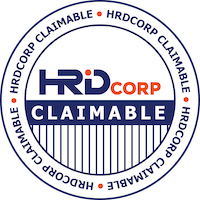Advanced Kafka: Tuning and Scaling
Master the art of tuning and scaling Apache Kafka under expert guidance. Enroll in our specialized training program tailored specifically to this course for an in-depth skill set in optimizing performance and ensuring reliability in your Kafka deployments.
- Available in:
- Malaysia
- Upcoming intakes:
- Oct 27, 2025
- Oct 28, 2025
- Oct 29, 2025
- Oct 30, 2025

Corporate Pricing
Pax:
Training Provider Pricing
Pax:
Features
Subsidies

What you'll learn
- Monitor Kafka clusters effectively using JMX metrics and manager tools.
- Develop scalable solutions by designing from scratch with performance testing.
- Optimize producer performance through advanced configurations and API usage.
- Design high-availability Kafka clusters with robust security measures.
- Enhance consumer efficiency by configuring offsets, groups, rebalancing strategies.
- Implement advanced stream processing techniques using KStream and KTable.
- Understand the architecture of Apache Kafka including producers, consumers, brokers, topics, partitions, and replication.
- Install and configure Kafka using Kraft while mastering CLI commands.
Why should you attend?
In this course, you will delve into the intricacies of Apache Kafka, a powerful distributed event streaming platform. The journey begins with an introduction to big data and Kafka's architecture, covering essential components such as producers, consumers, brokers, topics, partitions, and replication. This foundational knowledge sets the stage for more advanced topics. Next, you will explore Kafka installation using Kraft, learning key concepts and mastering CLI commands. You will also gain hands-on experience with Kafka producers and consumers. As you progress, the course delves deeper into Kafka brokers and partitions, emphasizing replication, reliability, fault tolerance, and guarantees. Producer performance tuning is a critical aspect covered in detail. You will learn about producer configurations, API usage, message acknowledgements, and advanced features like idempotent and transactional producers. Similarly, consumer configurations are explored extensively to optimize performance and ensure efficient stream processing with Kafka Streams. Monitoring and tools are vital for maintaining a healthy Kafka cluster. You will discover techniques for cluster monitoring using JMX metrics and various Kafka manager tools. Real-world case studies provide practical insights into performance tuning scenarios and best practices. The course also covers Kafka cluster design for high availability and security. You will learn about deployment architectures, cluster setup, maintenance, upgrades, troubleshooting, and advanced monitoring techniques. Schema registry management is another crucial topic that ensures seamless schema compatibility and evolution. Finally, you will dive into Kafka streams processing concepts and connectors. The course concludes with implementing a scalable Kafka solution from scratch. By the end of this comprehensive training program, you will be equipped with the skills needed to design, implement, tune, monitor, and secure robust Kafka clusters.
Course Syllabus
Day 1 - Kafka Fundamentals and Setup
Short Break
15 minsShort Break
15 minsRecap and Q&A
15 minsLunch
1 hourShort Break
15 minsShort Break
15 minsShort Break
15 minsRecap and Q&A
15 minsEnd of Day 1
Day 2 - Performance Tuning Essentials
Short Break
15 minsShort Break
15 minsRecap and Q&A
15 minsLunch
1 hourShort Break
15 minsShort Break
15 minsShort Break
15 minsRecap and Q&A
15 minsEnd of Day 2
Ratings and Reviews
Instructor
Mohammad Mehdi Lotfinejad is an accomplished Chief Data Officer and certified HRDF trainer with over 15 years of experience in computer science instruction and professional data science/engineering training. He combines extensive academic credentials with deep industry expertise, holding a PhD in Computer Science from Universiti Malaya and Harvard Business School certification in Business Analytics. His comprehensive technical background spans Apache Spark, MySQL, PostgreSQL, MongoDB, Snowflake, Redshift, Apache Airflow, API development, microservices, and Amazon Web Services. Currently serving as Chief Data and Knowledge Officer at Magna.ai, a Florida-based lawtech company, Lotfinejad leads the development of AI-driven legal case analysis systems, architecting graph databases, data warehouses, and workflow engines while ensuring compliance with legal standards. His concurrent role as Senior Data Engineer at AXIATA Digital Advertising (ADA) in Malaysia demonstrates his ability to manage complex, multi-regional data operations across Southeast Asian markets, designing automated pipelines using AWS RedShift, Snowflake, and Google BigQuery. His training expertise was honed during his tenure as Lead Senior Data Scientist Professional Trainer at The Center of Applied Data Science, where he designed and delivered comprehensive training programs for major corporations including CIMB, PETRONAS, SHELL, and TNB. He successfully led teams of data scientists and engineers in developing cutting-edge curriculum and migrating legacy systems to modern data management solutions. His academic foundation includes faculty positions at multiple universities where he taught computer architecture, programming languages, software engineering, and data structures while publishing numerous high-impact research papers and books. Lotfinejad's unique combination of technical leadership, educational expertise, and industry experience makes him exceptionally qualified to deliver sophisticated software training programs. His proven track record of leading cross-functional teams, developing enterprise-level solutions, and translating complex technical concepts into accessible learning materials positions him as an ideal trainer for organizations seeking to advance their technical capabilities in data science, engineering, and modern software development practices.'
Minimum Qualification
Target Audience
Methodologies
Instructor Reviews
Mehdi and I worked on several projects with company such as Petronas , Shell and CIMB Regional ETC. I must say Mehdi's training was highly appreciated by our clients as he was able to exhibit in full display his vast knowledge as a Data professional. I would highly recommend him to anyone looking for a top tier training expert.
Not only knowledgeable but also having hands dirty on what he knows Friendly and building networks quickly.
I had the pleasure of working with Mehdi together on some high-level initiatives such as the Petronas data scientist program and Shell's project to become a data-driven organization. During these projects, Mehdi received numerous accolades for his ability to share his knowledge and mentor up-and-coming data scientists. Based on our shared experiences, I have no hesitation in recommending Mehdi for any project or position he may be considered for.
FAQs
- Public pricing: applies for individuals signing up from different companies.
- Corporate pricing: applies if a company wants to have an intake for its employees only.
- Training provider pricing: applies only for other training providers looking to hire our trainers and use our content. Our content has a licensing fee.
We will keep you updated on the status of the intake after you enroll.
Courses you may like
Why should you attend?
In this course, you will delve into the intricacies of Apache Kafka, a powerful distributed event streaming platform. The journey begins with an introduction to big data and Kafka's architecture, covering essential components such as producers, consumers, brokers, topics, partitions, and replication. This foundational knowledge sets the stage for more advanced topics. Next, you will explore Kafka installation using Kraft, learning key concepts and mastering CLI commands. You will also gain hands-on experience with Kafka producers and consumers. As you progress, the course delves deeper into Kafka brokers and partitions, emphasizing replication, reliability, fault tolerance, and guarantees. Producer performance tuning is a critical aspect covered in detail. You will learn about producer configurations, API usage, message acknowledgements, and advanced features like idempotent and transactional producers. Similarly, consumer configurations are explored extensively to optimize performance and ensure efficient stream processing with Kafka Streams. Monitoring and tools are vital for maintaining a healthy Kafka cluster. You will discover techniques for cluster monitoring using JMX metrics and various Kafka manager tools. Real-world case studies provide practical insights into performance tuning scenarios and best practices. The course also covers Kafka cluster design for high availability and security. You will learn about deployment architectures, cluster setup, maintenance, upgrades, troubleshooting, and advanced monitoring techniques. Schema registry management is another crucial topic that ensures seamless schema compatibility and evolution. Finally, you will dive into Kafka streams processing concepts and connectors. The course concludes with implementing a scalable Kafka solution from scratch. By the end of this comprehensive training program, you will be equipped with the skills needed to design, implement, tune, monitor, and secure robust Kafka clusters.
What you'll learn
- Monitor Kafka clusters effectively using JMX metrics and manager tools.
- Develop scalable solutions by designing from scratch with performance testing.
- Optimize producer performance through advanced configurations and API usage.
- Design high-availability Kafka clusters with robust security measures.
- Enhance consumer efficiency by configuring offsets, groups, rebalancing strategies.
- Implement advanced stream processing techniques using KStream and KTable.
- Understand the architecture of Apache Kafka including producers, consumers, brokers, topics, partitions, and replication.
- Install and configure Kafka using Kraft while mastering CLI commands.
Course Syllabus
Day 1 - Kafka Fundamentals and Setup
Short Break
15 minsShort Break
15 minsRecap and Q&A
15 minsLunch
1 hourShort Break
15 minsShort Break
15 minsShort Break
15 minsRecap and Q&A
15 minsEnd of Day 1
Day 2 - Performance Tuning Essentials
Short Break
15 minsShort Break
15 minsRecap and Q&A
15 minsLunch
1 hourShort Break
15 minsShort Break
15 minsShort Break
15 minsRecap and Q&A
15 minsEnd of Day 2
Instructor Reviews
Mehdi and I worked on several projects with company such as Petronas , Shell and CIMB Regional ETC. I must say Mehdi's training was highly appreciated by our clients as he was able to exhibit in full display his vast knowledge as a Data professional. I would highly recommend him to anyone looking for a top tier training expert.
Not only knowledgeable but also having hands dirty on what he knows Friendly and building networks quickly.
I had the pleasure of working with Mehdi together on some high-level initiatives such as the Petronas data scientist program and Shell's project to become a data-driven organization. During these projects, Mehdi received numerous accolades for his ability to share his knowledge and mentor up-and-coming data scientists. Based on our shared experiences, I have no hesitation in recommending Mehdi for any project or position he may be considered for.
Corporate Pricing
Pax:
Training Provider Pricing
Pax:
Features
Subsidies

Ratings and Reviews
Instructor
Mohammad Mehdi Lotfinejad is an accomplished Chief Data Officer and certified HRDF trainer with over 15 years of experience in computer science instruction and professional data science/engineering training. He combines extensive academic credentials with deep industry expertise, holding a PhD in Computer Science from Universiti Malaya and Harvard Business School certification in Business Analytics. His comprehensive technical background spans Apache Spark, MySQL, PostgreSQL, MongoDB, Snowflake, Redshift, Apache Airflow, API development, microservices, and Amazon Web Services. Currently serving as Chief Data and Knowledge Officer at Magna.ai, a Florida-based lawtech company, Lotfinejad leads the development of AI-driven legal case analysis systems, architecting graph databases, data warehouses, and workflow engines while ensuring compliance with legal standards. His concurrent role as Senior Data Engineer at AXIATA Digital Advertising (ADA) in Malaysia demonstrates his ability to manage complex, multi-regional data operations across Southeast Asian markets, designing automated pipelines using AWS RedShift, Snowflake, and Google BigQuery. His training expertise was honed during his tenure as Lead Senior Data Scientist Professional Trainer at The Center of Applied Data Science, where he designed and delivered comprehensive training programs for major corporations including CIMB, PETRONAS, SHELL, and TNB. He successfully led teams of data scientists and engineers in developing cutting-edge curriculum and migrating legacy systems to modern data management solutions. His academic foundation includes faculty positions at multiple universities where he taught computer architecture, programming languages, software engineering, and data structures while publishing numerous high-impact research papers and books. Lotfinejad's unique combination of technical leadership, educational expertise, and industry experience makes him exceptionally qualified to deliver sophisticated software training programs. His proven track record of leading cross-functional teams, developing enterprise-level solutions, and translating complex technical concepts into accessible learning materials positions him as an ideal trainer for organizations seeking to advance their technical capabilities in data science, engineering, and modern software development practices.'
Minimum Qualification
Target Audience
Methodologies
FAQs
- Public pricing: applies for individuals signing up from different companies.
- Corporate pricing: applies if a company wants to have an intake for its employees only.
- Training provider pricing: applies only for other training providers looking to hire our trainers and use our content. Our content has a licensing fee.
We will keep you updated on the status of the intake after you enroll.
Courses you may like
Our Offers

Become a Trainer
Teach what you love. Abundent Academy gives you the tools you need to run your own trainings! We provide you with the platform, the students, the materials, and the support you need to succeed!
- Higher trainer payouts
- Ready-made course materials
- Student management system
- AI digital marketing assistant

Academy for Business
Get unlimited access to all of Abundent Academy's carefully curated courses for your team, all organized according to job category and role! Perfect for companies looking to upskill their workforce and stay ahead in the tech industry.
- Carefully curated courses
- Role-based learning paths
- Team progress tracking
- Gap Identification and Analysis
Top companies choose Academy for Business







